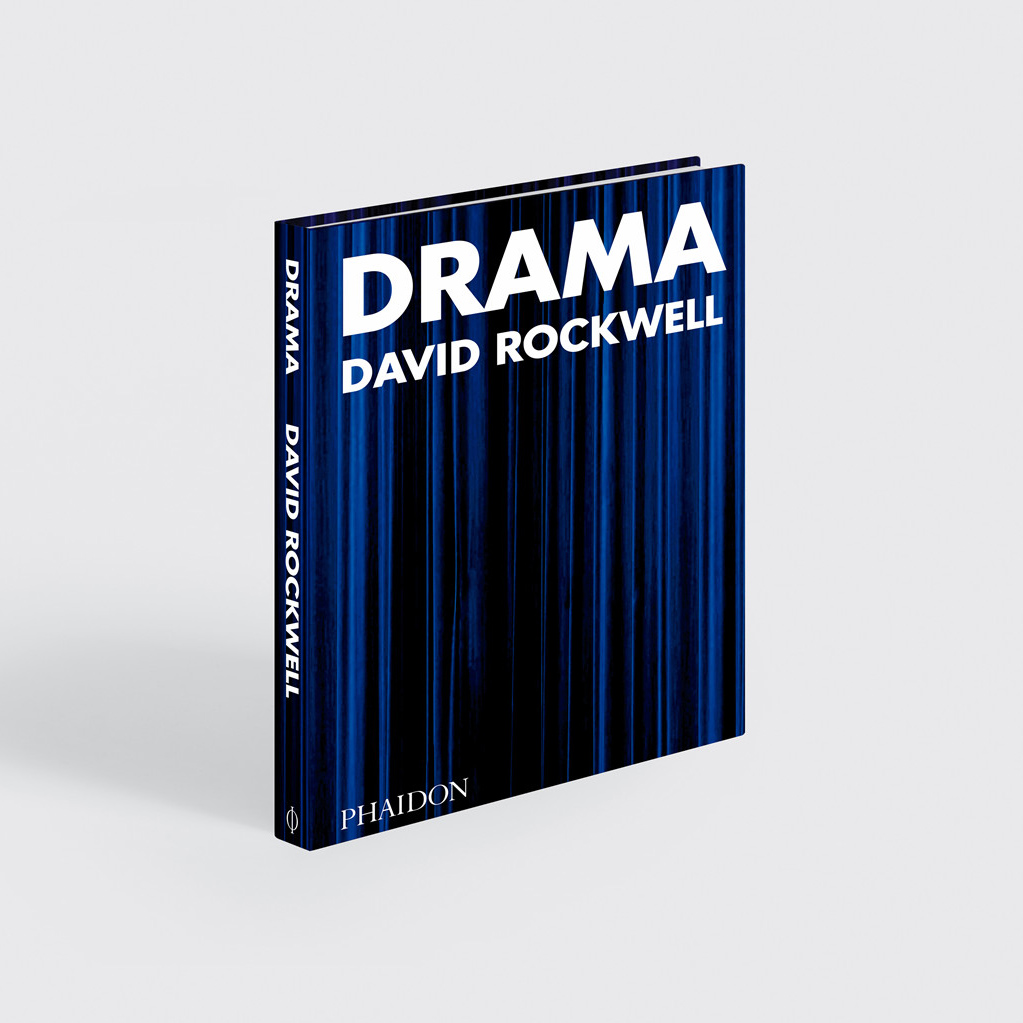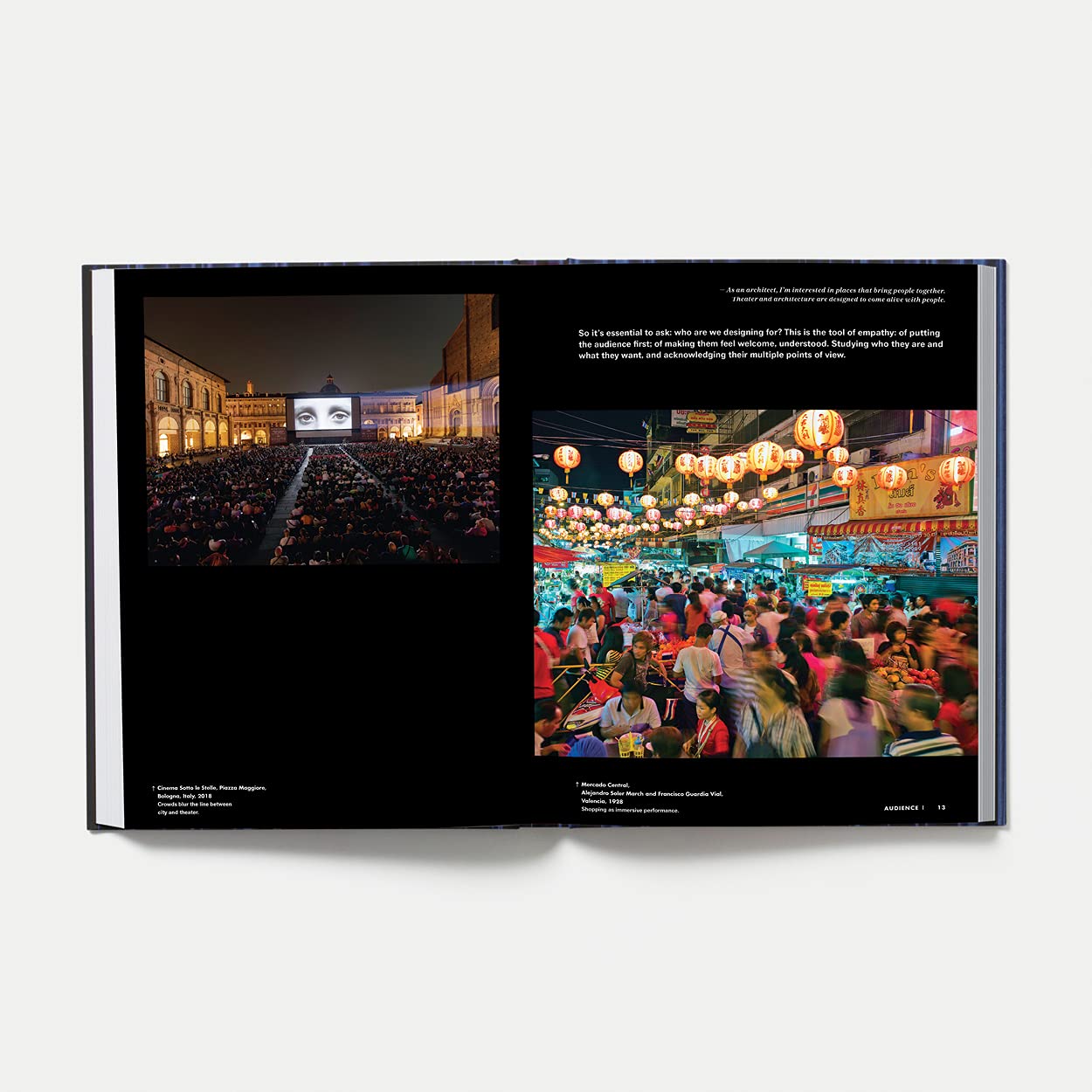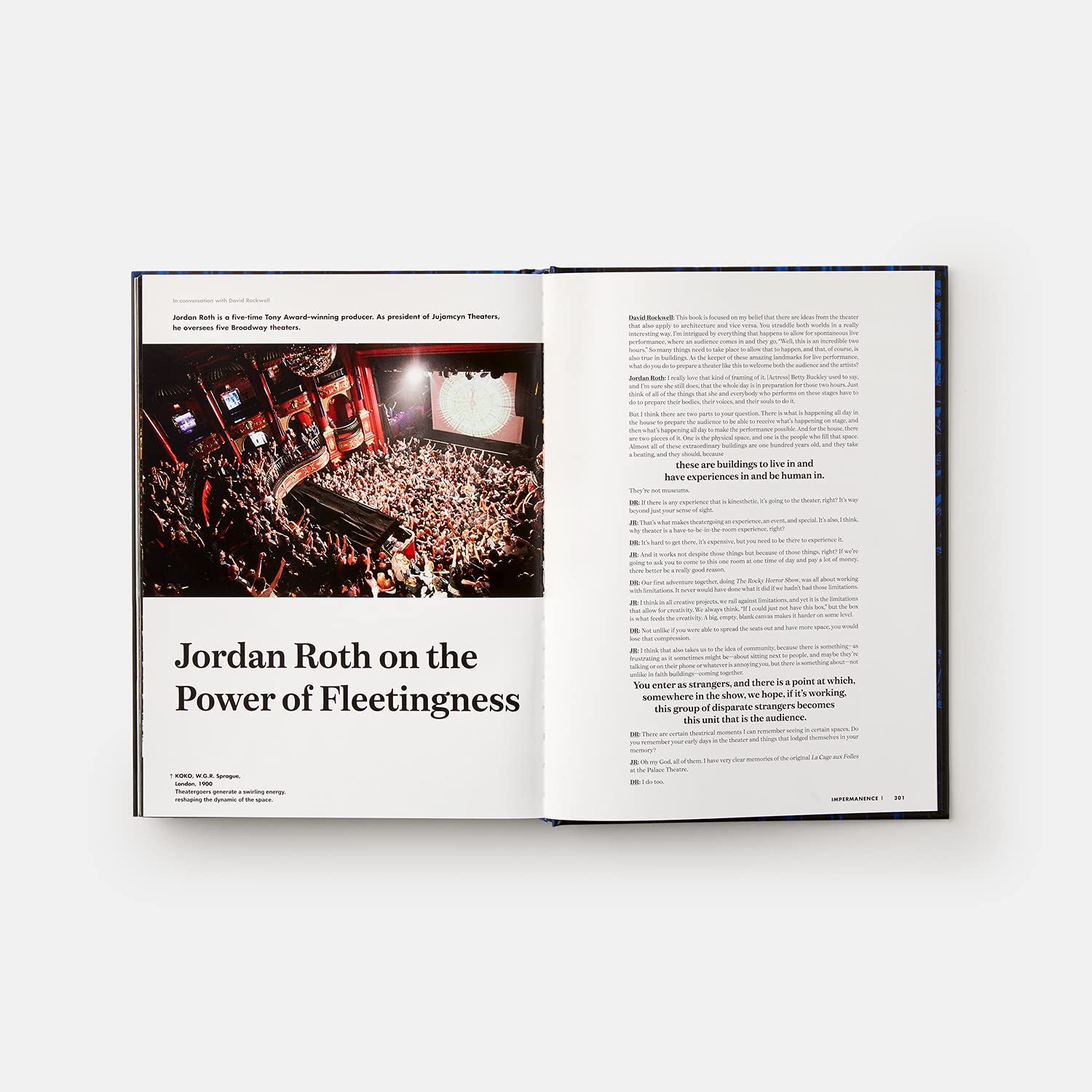
Drama, David Rockwell with Bruce Mau, edited by Sam Lubell, published by Phaidon
Back at the turn of the century Rockwell Group was always pushing for the big “WOW!” —like, “WOW! That giant baseball bat is made out of millions of baseballs!” All those WOWs weren’t just piled on to feed the public’s hunger for thrills and excitement—they evoke a sense of performance, showmanship, and drama that create deeper emotional experiences and a spectacular experience for people, so they walk away with a great memory. David Rockwell loves pouring on the sauce and building dramatic stories to heighten people’s involvement, a recipe that makes his work successful and popular.
And that’s Rockwell’s bag, all right: literally printed on the bag that his new book, Drama, comes in: “A building is a memory machine” (à la Le Corbusier: “a house is a machine for living in”).
Everything from his drawing table is in this book: 300-plus pages of show-and-tell drawings, diagrams, and ideas for projects—from stage sets for The Normal Heart, Lobby Hero, Side Show, and the Oscars, to spaces as varied as the exhibition space of the National Center for Civil and Human Rights in Atlanta, the mountable/demountable TED theater in Vancouver, the transforming Shed in NYC, the nomadic Museum of Feelings somewhere, and Imagination playgrounds all over. Also included are, of course, restaurants like Nobu, hospitality/work spaces like NeueHouse and “Unscripted” furniture for Knoll. All of these projects have tales worth remembering. (Full disclosure: I used to work with David Rockwell. I helped found his LAB studio, to create architectural-scale digital experiences. One of my favorite projects, Hall of Fragments at the Venice Architecture Biennale, isn’t even in the book!)

If for some reason you can’t feel the thread of theatricality in his work, it’s impossible to miss it in the trajectory of his other books: Pleasure was the first in the series, then What If. . . was sandwiched between Spectacle and this latest, Drama. What these books do is fill in the backstory with examples from architecture and theater from both inside and outside the firm, and with expert testimony from Quincy Jones, chef José Andrés, lighting designer Peggy Eisenhauer, the Studio Museum in Harlem’s Thelma Golden, Daniel Libeskind, and of course, lots of lush, full-bleed color pictures. Always pushing a step beyond, the book even has a movie-style trailer. Maybe the next book will actually pop up and dance? (I’m serious— it’s not hard to imagine that they are already working on some kind of VR book.)
What most distinguishes David Rockwell’s work is its theatricality—its staging, scripting and razzamatazzing—and this book makes the point that, like spectacle, the ephemeral heightens the emotional impact of real life. “Every space we are in affects us in ways we may or may not be conscious of. This happens whether it’s a building designed by architects or if you’re walking through some trees into a field,” Michael Kimmelman, critic for the New York Times says in one of the book’s panel discussions.

Rockwell, Diller Scofidio + Renfro, and Kevin Kennon built the WTC Viewing Platform not just so people could witness the destruction caused on 9/11, but to fulfill the need to acquire some memories before they were gone. Bruce Mau writes in the Afterword: “This book is about the lessons we can learn from the unique demands that theater makes on design. The central importance of narrative and the stories we live. The profound impact of movement and the journey of experience. The freedom and beauty of impertinence in contrast to the architectural myth of foreverness.”
Rockwell uses the visceral impact of both theater production and temporary design, because fleeting existence makes for more intense memories. Good experiences encourage good behavior. And memories last longer in people’s minds than the time of the actual experience in the place, like a restaurant or at a Broadway show.
Maybe because I’m not the immortal youth I used to think I was, I’m able to appreciate the transience of things and of people. But, wow, the last chapter of Drama is titled “Impermanence.”
